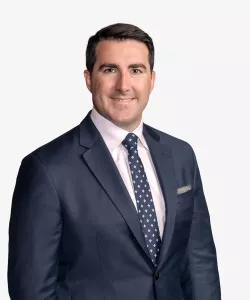Friday Enforcement Wrap: University Settles for $112.5 Million to Resolve Allegations of False Claims
Headlines that Matter for Companies and Executives in Regulated Industries
DOJ News
Duke University Settles for $112.5 Million to Resolve Allegations of False Claims
The US Department of Justice announced on March 25 that Duke University agreed to a settlement in the amount of $112.5 million to resolve allegations that the University caused the submission of false claims to the US Government when it falsified research results and reports that were funded by Federal grants, thereby violating the False Claims Act. The grants were awarded by the National Institutes of Health (NIH) and the Environmental Protection Agency (EPA) and concerned study of the lung function of laboratory mice.
The DOJ alleged in a statement that “between 2006 and 2018, Duke knowingly submitted and caused to be submitted claims to the NIH and to the EPA that contained falsified or fabricated data or statements in thirty (30) grants, causing the NIH and EPA to pay out grants funds they otherwise would not have.”
The case was initially pursued by a former Duke employee pursuant to the qui tam provisions of the FCA. This settlement serves as a reminder that not only can falsified or fabricated research data harm the integrity of scientific research, but it can implicate the FCA if the research was conducted pursuant to grants awarded from a US Government agency.
The case is captioned United States ex rel. Thomas v. Duke University, et al., Case No. 1:17-cv-276 (M.D.N.C.).
Read the DOJ press release here.
Baltimore Hospitals Pay $35 Million in False Claims Act Settlement
Two Baltimore hospitals associated with large hospital system MedStar Health, Inc. (MedStar Union Memorial Hospital and MedStar Franklin Square Medical Center) agreed to resolve allegations that they improperly paid kickbacks to the Midatlantic Cardiovascular Associates, P.A. (MACVA) group in exchange for referrals of expensive cardiovascular patients in order to boost hospital profits.
The DOJ stated that the main allegations focused on “the payment of kickbacks to MACVA under the guise of professional services agreements, in return for MACVA’s referrals to Union Memorial of lucrative cardiovascular procedures, including cardiac surgery and interventional cardiology procedures, from Jan. 1, 2006, through July 31, 2011.” The Second Amended Complaint, filed by three qui tam whistleblower physicians, alleged that the MedStar entities violated the Stark Law by engaging in improper referral practices, and violated the Anti-Kickback Statute by offering remuneration that exceeded fair market value, among other things, thereby implicating the FCA.
Read the DOJ press release here.
Failure to Return Overpayments Results in $700,000 FCA Settlement
Accurate Home Care, LLC (AHC), located in Otsego, Minnesota, voluntarily disclosed to the U.S. Department of Health and Human Services that it “double billed” for certain home care services when it submitted claims for payment to both the Minnesota Medicaid program and private insurance companies for the same service, and retained the Medicaid reimbursement that it received. AHC settled its FCA liability due to its misconduct in the amount of $726,957.
Read the DOJ press release here.
Litigation News
FCA Qui Tam Suit Properly Dismissed by United States in Mississippi
In a memorandum opinion by the United States District Court for the Northern District of Mississippi, the court held that despite the qui tam relator’s objections, the US Government properly invoked its “unfettered discretion” under the FCA to dismiss cases brought by relators.
The underlying matter involved a former employee-turned qui tam whistleblower who alleged that Delta Regional Medical Center’s violation of the Emergency Medical Treatment Act (EMTALA) and subsequent failure to report those violations rendered the Medicare and Medicaid reimbursement the hospital received from related claims as “false.” Ultimately, the Government decided not to intervene in the case and filed a motion to dismiss.
The relator argued that before the Government could dismiss her suit, they must “put forward some reason that bears a rational relation to a valid government purpose.” The Court held that the standard set forth in Swift v. United States, 318 F.3d 250 (D.C. Cir. 2003), was most appropriate, and that “the government possesses the unfettered discretion to dismiss a qui tam False Claims Act action” and that, among other things, allowing the Government to dismiss qui tam actions unhindered “is consistent with the notions of prosecutorial and executive discretion.”
The case is United States ex rel. Sibley v. Delta Regional Med. Ctr., No. 4:17-cv-000053, 2019 WL 1305069 (N.D. Miss. Mar. 21, 2019).
DOJ Intervenes in Hospital Case to Pursue FCA Violations
The United States filed a Complaint in Intervention on March 25, 2019 in the Western District of Pennsylvania to officially mark its intent to pursue multiple claims of healthcare fraud and abuse against Wheeling Hospital, Inc., the Hospital’s management consulting firm R&V Associates, Ltd., and the Hospital’s CEO Ronald Violi.
The whistleblower in the case was a former executive of the Hospital. The Government alleges that while under the “direction and control” of R&V and Violi, and motivated to recoup significant financial losses that the Hospital experienced over the years, the Hospital entered into compensation relationships with referring doctors “that did not satisfy the requirements of any statutory or regulatory exception to the Stark Law, or that violated the AKS.”
Specifically, it alleged that the Hospital tracked the revenue generated by each physician, based compensation on the volume or value of referrals, and compensated physicians at levels that exceeded fair market value. Of particular interest in this case is the weight and importance that a third party management consulting firm allegedly yielded over the Hospital, and its inclusion in the Government’s Complaint.
The case is captioned United States of America ex rel. Louis Longo v. Wheeling Hospital, Inc. et al., No. 17-cv-1654 (W.D. Pa.).
Read the DOJ press release here.
Analysis You Can Use
The Latest from Our Client Alerts
Fourth Circuit: Government Not Collaterally Estopped from Prosecuting Defendant After Declining to Intervene in Civil FCA Suit Against Him
As a matter of first impression, the US Court of Appeals for the Fourth Circuit recently held that the government’s decision to decline to intervene in a civil False Claims Act suit brought by a private relator does not preclude the government from bringing criminal fraud charges against the same defendant in a parallel proceeding.
Contacts
- Related Industries
- Related Practices
-
Read Time
8Minutes





